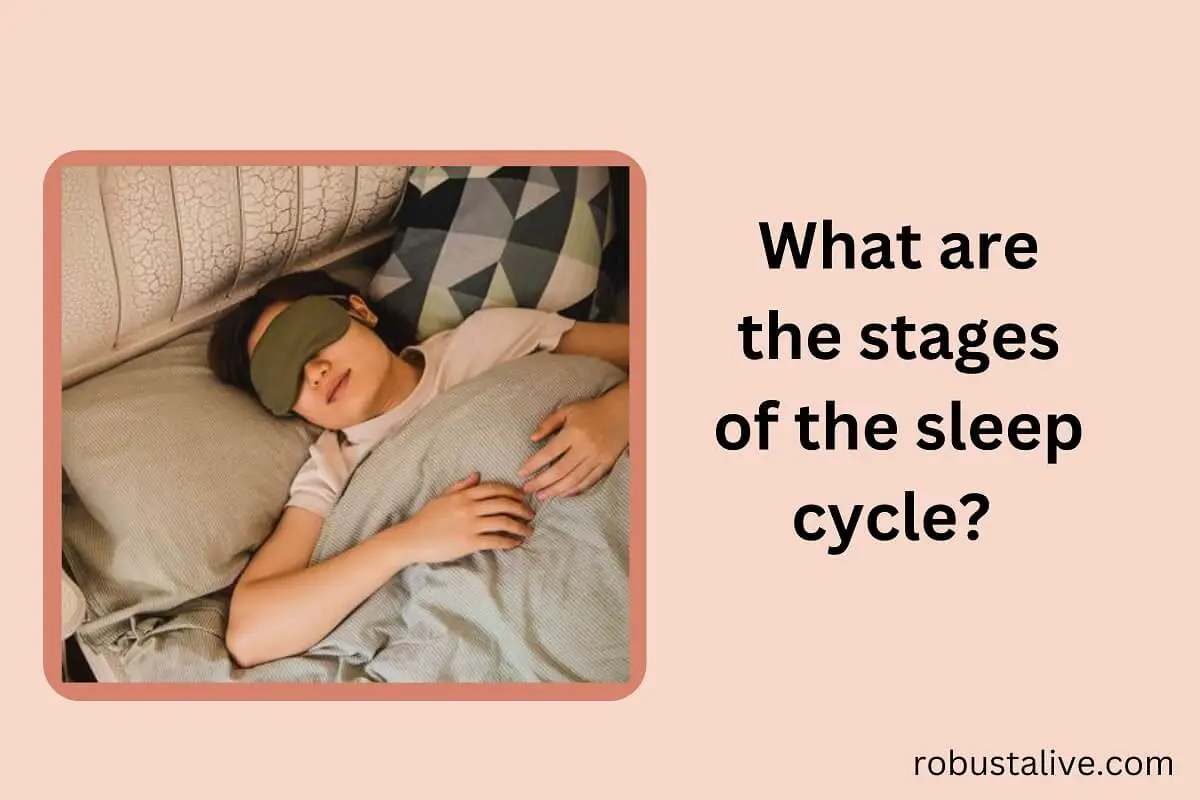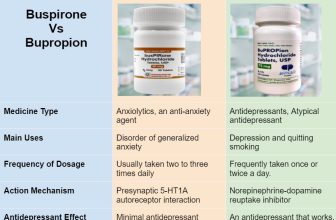What are The Stages of The Sleep Cycle? Interesting Facts

Sleeping is no less than a rollercoaster ride as you go through different stages of sleep. You become unaware of what’s happening when you are sleeping as your body and brain become inactive.
Every stage has a unique role in how you feel the next day. Keep reading to learn the stages of the sleep cycle, which one restores your energy, which stage benefits the brain, and many more things. But let’s start with the basic information about what are the stages of the sleep cycle.
What is the sleep cycle?
Sleep is not constant. In one night, your sleep is made up of different rounds that, in total, have four stages. Not all sleep cycles have the same length, but on average, they last about 90 minutes each.
In one night, we go through around 4 to 6 sleep cycles. They aren’t all last the same, but they have an average of ninety minutes.
Are all sleeping cycles the same?
As you progress through the night, the sleep cycle changes. The first cycle is probably the shortest, lasting for about 70-100 minutes, while the other is larger, around 90 to 120 minutes; besides, every cycle composition means how much time you have spent in each cycle changes with the night progression.
The sleep cycle generally varies from person to person and from one night to another. It also depends upon various factors like current sleeping patterns, how long ago you should take your meal, age, alcohol consumption, and many others.
Falling asleep
Scientists use the EEG (electroencephalogram), a non-invasive test for recording brain engagement in different mental activities when a person is sleeping. During the earliest sleep phases, you are moderately alert and awake.
At this time, the brain generates the beta waves, which are small yet fast waves that show the brain is alert and engaged. As the brain starts slowing down, it lights up with alpha waves. When it changes into a deep sleep, you will experience vivid yet intense sensations called hypnagogic hallucinations.
Some common examples include hearing your name when someone calls you. There is also another thing called myoclonic jerk. It’s the sudden startled feeling that you experience but any reason. Here is the detail answer to your frequently asked question; what are the stages of the sleep cycle?
NREM Stage 1
The sleep cycle’s first stage is the transition period of sleep and wakefulness. During this period, if you wake them in sleep, they will probably say that they weren’t sleeping.
In the NREM stages 1:
- Your brain functioning slows
- Your eye movement, your heartbeat, and your breathing slow down
- Your muscles twitch, and your body relaxes
The first brief sleeping period lasts around 10 minutes. At this time, your brain is still active to produce the high amplitude theta waves that are slow brain waves. They mainly occur in the frontal lobe.
NREM Stage 2
According to research by the American sleep foundation, people generally spend about 50% of their sleep in their NREM stage 2. It typically lasts for about 20 minutes in one cycle.
During NREM stage 2 of sleep:
- Our body becomes unaware of the surrounding
- Body temperature drops
- Eye movement stops
- Heart rate and breathing rate become more and more regular
In this stage, our brain produces rhythmic and rapid brain waves known as sleep spindles. They are considered a memory consolidation feature. That’s when the brain filters, gathers, and processes our new memories from the previous day.
During this stage, our body slows down to prepare for the NREM stage, which is the 3rd one. It is the deep sleep stage in which our body restores, resets, and conditions for the next day.
NREM Stage 3
Deep and slow brain waves emerge during the NREM 3 sleep stage, known as delta waves. It is also a deep sleep period in which any activity or noise may not be able to wake the person.
Proper NREM stage 3 sleep benefits the sleep and allows the person to be refreshed and active for the next day. During the NREM stage 3, sleeps:
- Breathing slows down, and blood pressure drops
- Muscles get completely relaxed
- You slowly progress to the deepest sleep
During this stage, the body works on its physical repair. At the same time, your brain works in combining all the declarative memories. For instance, personal experience, stats, facts, general knowledge, and many other things you have learned.
Stage 4 REM sleep
When your brain is aroused with mental activities after REM sleep, your voluntary muscles get immobilized in this stage. During REM sleep, your brain’s activity becomes similar to working hours. However, the good thing is that your body is paralyzed, which prevents you from acting out your dreams.
The REM sleeps stage begins after 90 minutes of your sleep. During this REM stage;
- Your body shows a little activity level
- The body is immobilized and relax
- Your eyes start moving
- Your breathing becomes irregular yet faster
- Dreams
In REM memory, deceleration also takes place. However, it’s thought that REM sleep occurs when emotion and emotional memories are stored and processed. Besides, your brain also uses this time to cement all the information to memory.
Interesting facts about sleep
Sleeping is vital for a person’s well-being and health, and there is still so much we don’t know about sleep. But here is a list of some facts that we do know.
- Humans spend approximately 1/3 of their lives sleeping, whereas other animals like Bats and koalas can even sleep 22 hours daily.
- Energy levels have a natural incline at two times in a day, first at around 12-2 p.m and the second at 8-9 p.m, that’s in the middle of the day.
- Higher altitudes can negatively impact your sleep quality. It can be because of the low, slow-wave amount of deep sleep.
- Sleep deprivation also impacts our health. Even 24 hours without sleep can result in mood swings, altered perception, and difficulty in doing everyday things.
- Newborns generally sleep 14 to 17 hours in a day, whereas teenagers need 8 to 10 hours of night sleep for proper functioning.
- Still, there are too many things to learn about sleep, but the most important thing we know is that it is as important as daily exercise and good health.
Conclusion
Your body cycles around all these four stages at night. Among them, three stages are non-REM, and the other is REM. Between these sleep cycles, our brain waves, breathing, muscles, and heart rate are all affected differently.
Taking proper sleep is vital for health benefits like growth, digestion, memory, e.t.c. Sleeping disorders like insomnia can cause difficulty breathing and body functioning throughout the day.
All we can do to improve our sleep quality is work on our hygiene and address the underlying conditions.
FAQ’s
What are the stages of the sleep cycle?
Experts divide sleep into four categories awake, light, deep, and REM sleep. Every stage has a vital role in maintaining your overall health and well-being. I have mentioned all four stages in detail in the article. Read the above to get complete information.
What’s the best sleep stage?
All scientists agree that proper sleep is vital to stay healthy. Among stages 1 to 4, all are equally important as each has a specific role. But deep sleep is of great value as it makes you feel fresh to start a new day actively.
How much REM is normal?
You must go through about 3 to 5 REM cycles in one night. Every stage gets longer with the progression in time. The final stage is about an hour. For a healthy adult, at least 20 to 25% of REM stage sleep is an idea. If you get an 8-hour sleep, 90 minutes should be of REM.
References
https://www.sleepfoundation.org/stages-of-sleep
https://www.verywellhealth.com/the-four-stages-of-sleep-2795920
https://www.webmd.com/sleep-disorders/sleep-101
https://www.healthline.com/health/healthy-sleep/stages-of-sleep#takeaway






